In today’s world of remote and distributed work, corporate retreats have been redefined as a powerful way to support employees and company culture. Retreats can be a fantastic opportunity for your employees to escape work for a bit while strengthening relationships, boosting productivity, and refreshing workplace morale.
These excursions can break up the monotony of the day-to-day grind and can be a respite from the standard cycle of meetings, Zoom calls, productivity reviews, and workplace projects.
It’s important to put some time and thought into the planning process to make sure that you curate a positive environment. Follow our 8-step guide to plan the best possible retreat for your company.
TLDR:
- Start planning 6-12 months ahead to secure venues and give your team time to adjust schedules.
- Book group-friendly venues with work amenities like WiFi and meeting rooms plus outdoor spaces.
- Mix active and laid-back team-building activities so all physical abilities feel included.
- Budget for venue, lodging, transport, catering, and activities upfront to avoid surprises.
- AvantStay offers hotel buyouts, estate takeovers, and retreat coordinators for seamless planning.
How to plan a corporate retreat that your team will love
Let’s talk about some decisions you need to make before you get into the 8-step planning process. These things will help you narrow down what you’re looking for, so you can plan accordingly.

Define your company goals
The first step in the retreat planning process is figuring out why you’re doing it. What’s the purpose of the retreat? Many businesses plan a company retreat primarily as an opportunity to bring team members together on a fun getaway to reflect on the year’s performance, company culture, and the overall work environment.
But it doesn’t have to be all about work. These retreats also offer an incredible opportunity for team bonding and relaxation for everyone on the team. If your office sometimes feels like a collection of individuals instead of a united front working together toward a shared purpose, some carefully chosen activities can help them bond.
Sure, colleagues must be productive and achieve the company’s work-oriented goals. But an enjoyable work environment is a big part of that, and retreats are a great way to help work toward that more personal goal.
One goal of a company retreat is to help employees learn about each other’s personalities and how they work. Everyone is different. Some people work better alone, while others are more productive in teams. Some people like to work in silence, while others prefer to listen to music or brainstorm out loud. Some people enjoy sitting at a desk, while others work better while standing or moving.
Retreats provide a unique opportunity for employees to have fun while learning about each other’s personalities and work styles. This insight can help you to curate a more enjoyable (and more productive) workplace when you get home.
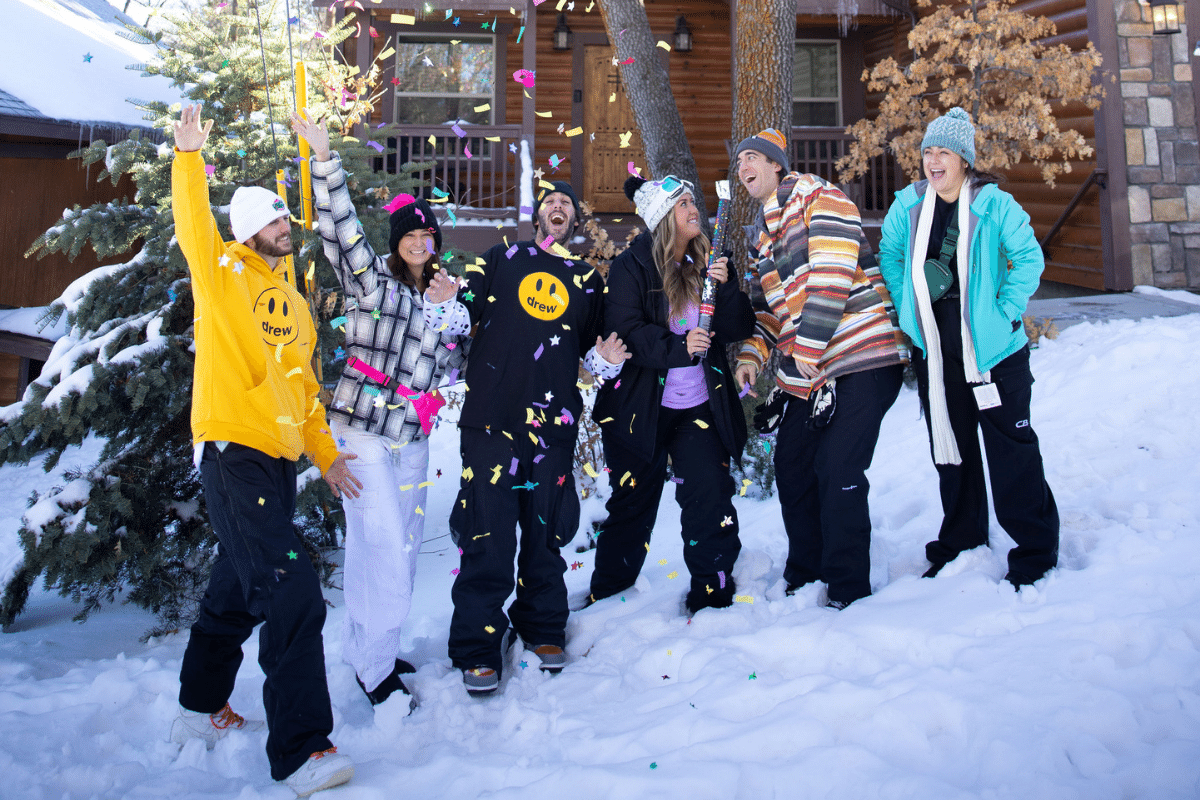
Consider the time of year and season
Different locations and styles of retreats can be great at varying times of the year, so you’ll want to consider this when planning your next company retreat.
First, consider the weather. If you want an outdoor-oriented retreat, you’ll need nice weather. You probably don’t want to go to the desert in the summer or the mountains in the winter if you’re hoping to do lots of hiking.
But if you’re planning on skiing or snowball fights, a winter trip to the mountains could be great! For example, you might consider Cherry Ridge in Breckenridge or Silver Sun in Park City. Or the desert in the summer could be great if you’re hoping to have a lot of pool days or lake days. Try buying out the Monkey Tree in Palm Springs for a pool all to yourself, or book Buena Vista Estate in Coachella Valley for a private pool AND a private lake. Just make sure to provide a detailed list to your employees of what they need to bring to prepare for the weather.
Not just do you want the weather to cooperate with your plans, but you also want to look at how your venue’s pricing fluctuates throughout the year. For example, a mountain resort will likely cost more during winter because everyone wants to go skiing or snowboarding.
But if you’re more interested in hiking and other mild-weather activities, you could consider going during a different time of year. You’d get the weather you’re looking for, and you’d probably get a cheaper rate.
Look into a few different potential retreat locations and see which one works best for what you have planned.

Give your team a save-the-date with sufficient time to plan
While your company retreat can provide an incredible opportunity to get away, you still want to make sure that it doesn’t interfere with too many people’s busy personal schedules. Most people have lives and responsibilities outside the office that can be tricky to work around.
Don’t spring the news on your team at the last minute. Make sure that you let them know you’re planning a retreat with a good amount of advanced notice, and let everyone know of any costs they may need to budget for.
That means you’ll need to start planning even sooner. It’s usually a good idea to begin the planning process for a company retreat anywhere from six months to a year in advance, depending on the group size. That will make it easier for you to find lodging and venues that can accommodate the number of people you’re bringing and will take the stress off of you as the retreat gets closer.
8 steps to follow when planning a corporate retreat
Now that you have a general idea of what you want your retreat to look like, let’s get into the nitty-gritty. Follow these eight steps to plan the company retreat of your dreams:

1. Find and book the venue
Choosing the right venue can make or break your team retreat. These trips are typically designed as something of an escape from the usual workspace, so make sure you’re looking for venues that will provide a fun and unique experience for the entire team.
But the right venue will look different for different teams. With a small group, you could probably book a group home or another short-term rental. If you have a large group, you may want to consider a boutique hotel or resort as accommodation.
Whatever you choose, make sure you’ll be able to plan activities that take place outside of a conference room. Remember, you’re trying to avoid the mundane corporate environment!

2. Book lodging for the offsite
Depending on which venue you choose, you may need to provide offsite lodging for your team. If that’s the case, you’ll want to make sure the lodging isn’t too far away. If your employees are driving to the retreat and have their cars, you may have some wiggle room. But if they’re taking a bus or flying to the retreat, make sure it’s going to be easy for them to get from their room to the venue each day.
If you want your team to have a truly straightforward experience, AvantStay offers the opportunity to book out an entire hotel, an entire neighborhood of villas, condos & homes within walking distance of each other, or even take over a whole estate together.
While it’s not necessary, it can be a nice touch to put together some sort of welcome basket for each person. Leave them on the beds for them to find when they check in. You can include things like planners, copies of the retreat agenda, water bottles, or other company-branded swag (like t-shirts, pins, totes, backpacks, or temporary tattoos), and some self-care items like face masks or snacks.
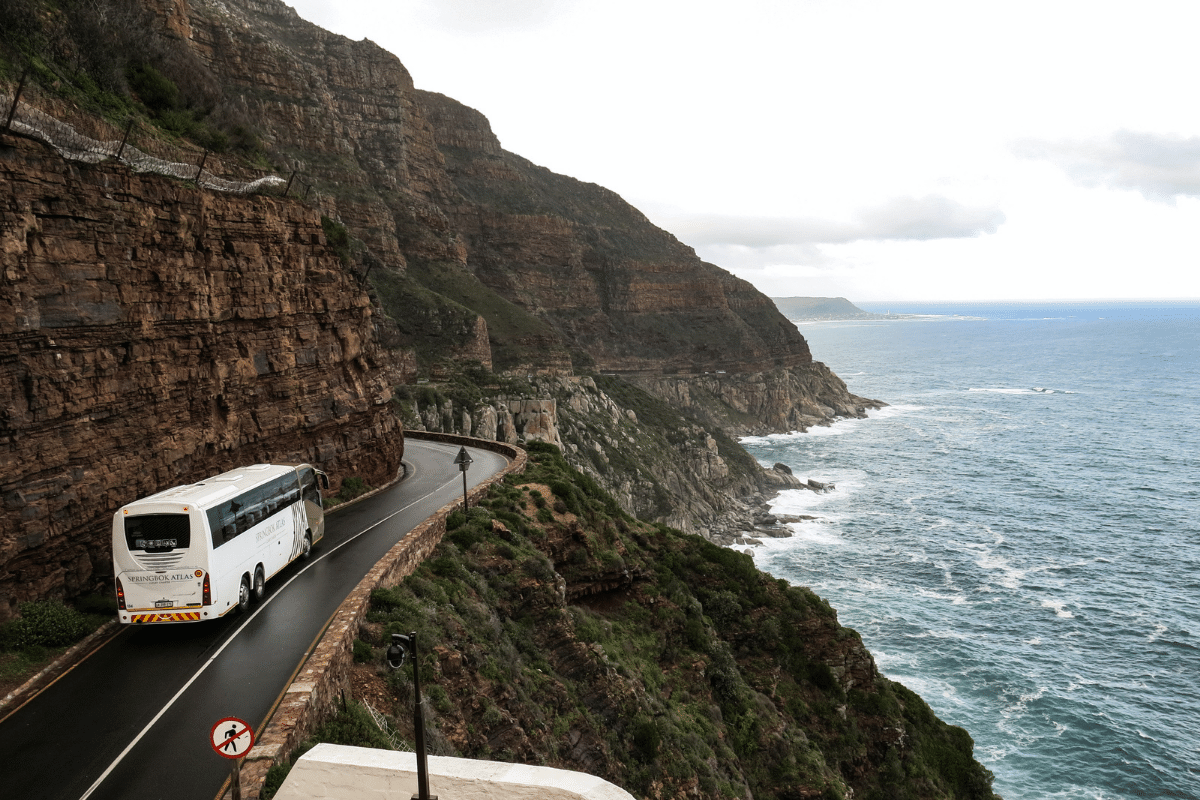
3. Secure transportation
Your employees must be able to safely get to and from the retreat, and then to and from their rooms once they get there.
If your retreat is close to home, decide if you want employees to drive themselves or if you want to rent a shuttle or a bus to take everyone there and back together. If you’re choosing the shuttle route, make sure your employees won’t need their vehicles while on the retreat. If your employees will be driving there, make sure there are ample parking spots.
If you’re traveling further away for the retreat, make sure you take care of all the flights and subsequent rental cars, Uber rides, or shuttle services. You don’t want your employees to get stressed about transportation during the retreat. The more you plan for a smooth ride, the easier it will be for everyone in the long run.

4. Manage food and catering if needed
One of the best parts of vacation is the food. It should be no different on a corporate retreat. Shared meals can offer a great bonding experience, so plan what food options to offer your team.
Will there be self-serve options? Large catered meals? Maybe you could even consider cooking classes as a team-building experience that ends in a great meal or ask AvantStay’s retreat coordinator to book you a private chef for a delicious feast The options are endless, just make sure you plan ahead.
Some hotels and venues have food and drink options available for large groups. The bigger the group, the cheaper the rates typically are. That can be a great option, but realize that people probably won’t want to have every meal on-site. You may want to consider branching out to offsite restaurants for a meal or two as well. If you need recommendations, AvantStay’s retreat coordinators are ready to help you find and book the best dining in the area for your team.
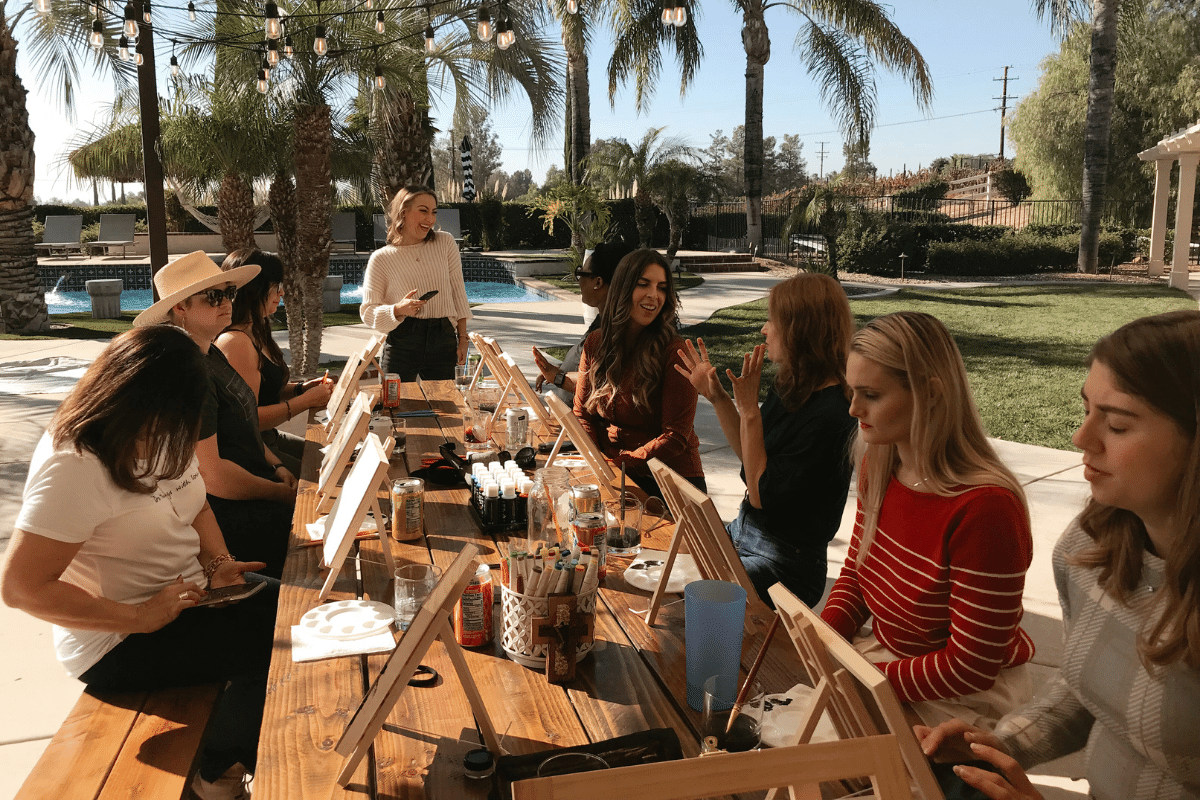
5. Coordinate and plan team-building activities
These are critical retreat activities, but they can either be really fun or cheesy. Make sure you think long and hard about the team-building activities you plan and think through what sounds like fun.
Some popular options you can incorporate at any venue include icebreakers that allow people to get to know their colleagues better and scavenger hunts that let them have some fun and explore the retreat location. You want your employees to get to know each other’s personalities better and cultivate better working relationships.
Then depending on the venue, there are plenty of other fun team-building exercises you can plan to promote employee engagement. Wherever you are, try to think about ways to get out and enjoy some fresh air, beach days, hiking, skiing, etc.
When planning your retreat, make sure you incorporate a variety of activity styles to accommodate people’s preferences and comfort levels. Some activities can be more active (like hiking and yoga), while others could be more laid-back (like board games or crafts).
Include different options for people with varying physical needs and capabilities. If there’s a strenuous hike option, plan a shorter guided loop for those with different needs.
You could make personal sessions where everyone has the chance to share a bit about their lives outside of the workplace, and even offer people the opportunity to teach their colleagues about something they have a passion for. AvantStay retreat coordinators can help book activities like mixology classes, beach picnics, and more if you want someone else to take care of the planning!
Remember, team-building activities aren’t just about bringing your team closer together in a work environment. It’s about building relationships and helping people get to know their colleagues better. Ideally, your employees will leave the retreat feeling like they’ve developed friendships with their colleagues.
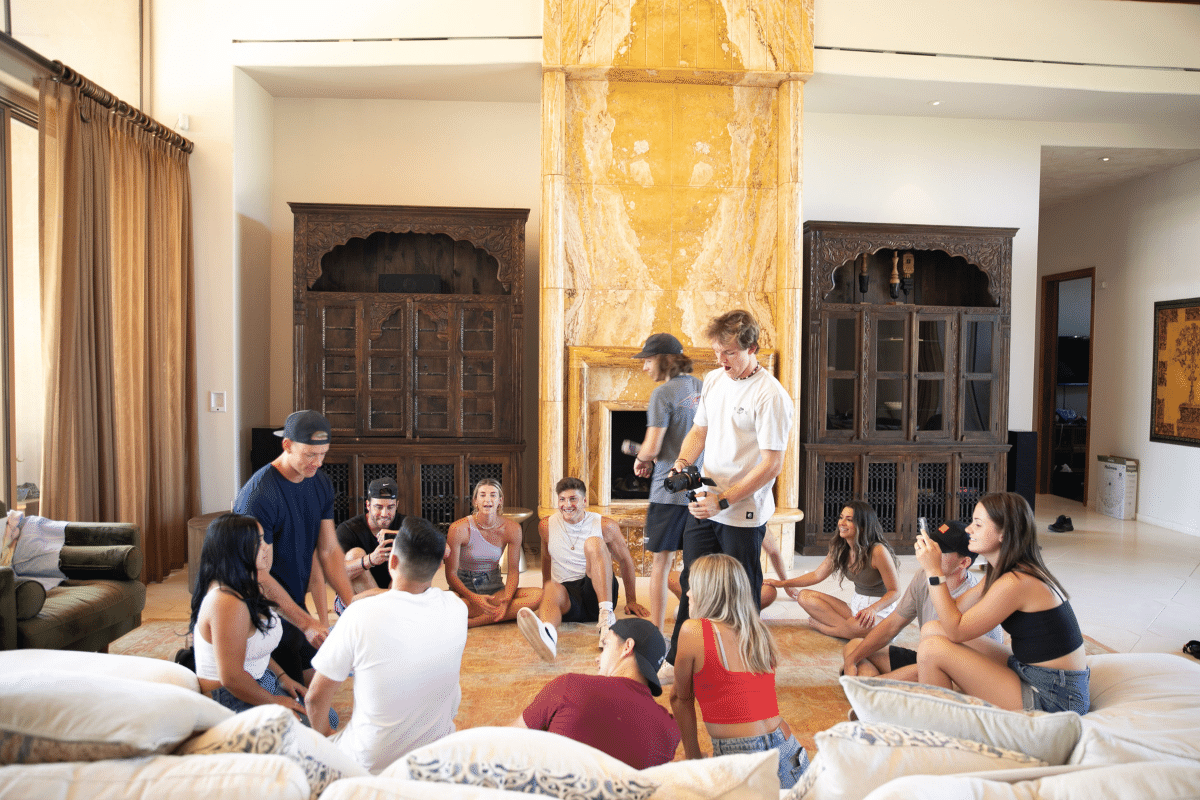
6. Organize work sessions
Retreats can be fun, but you’ll likely need to get some work done at some point. Check that the venue has everything you need, including comfortable work seating, WiFi, and meeting rooms.
While working on a retreat doesn’t always sound appealing, it can be a fantastic opportunity for remote-work companies to have in-person brainstorming sessions, which are often more productive than over the phone. It can be hard to achieve a sense of teamwork in a remote team, so factoring in some working hours during the retreat may help.

7. Provide restaurant recommendations and activities in the area
Sure, the retreat is technically a work thing. But you must schedule some downtime for your employees as well. Make sure you not just allow for some free time but also provide some recommendations of things to do.
One way to do this is to create a pamphlet or information card waiting for each employee on their bed when they check-in. The card could list information about restaurants, activities, and other interesting locations in the area. Include some that are walkable, and some that may require a drive, depending on what they’re feeling up for.
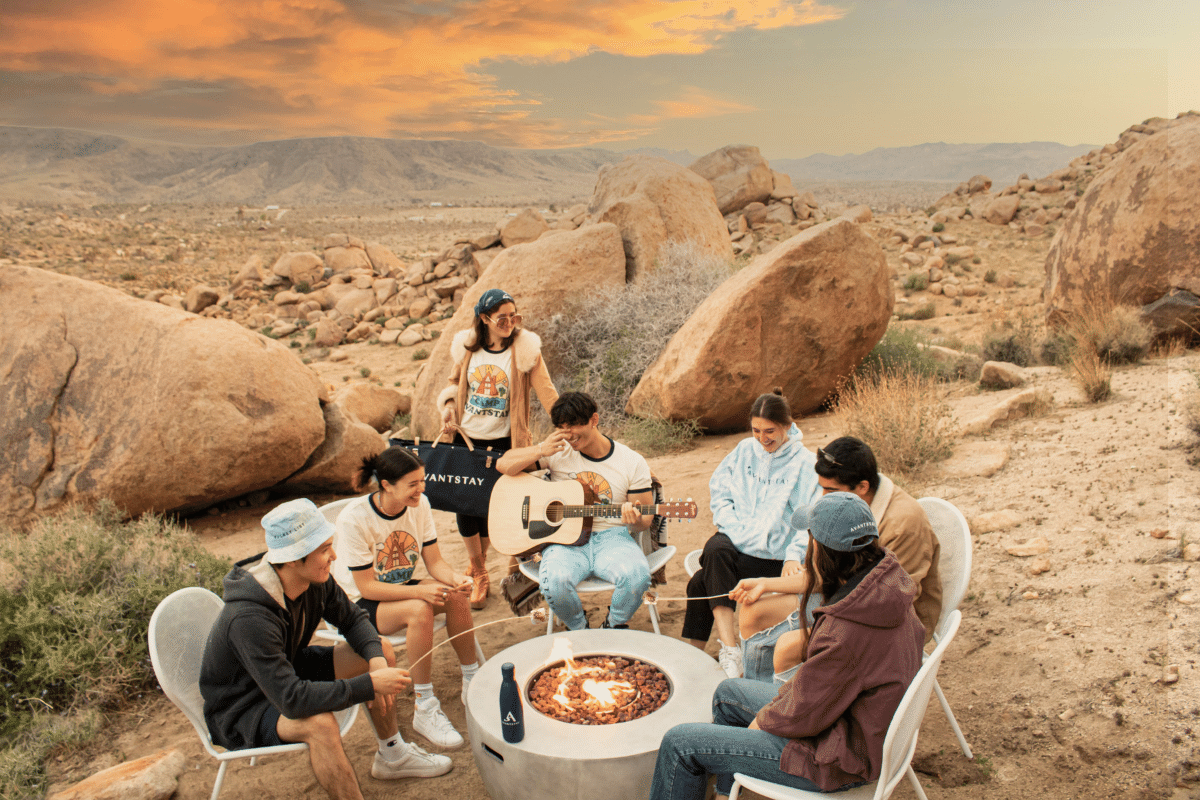
8. Create a post-retreat survey
No matter how much thought you put into planning your retreat, you can never really know how well it’ll go. That’s why it’s always good to talk to your employees and get a feel for how much they enjoyed it. You can take their feedback and use it when planning your next corporate retreat.
While you may have good relationships with some employees, not everyone will feel comfortable voicing any questions or concerns they had in one-on-one chats. You’ll want to make sure you get as much honest feedback as you can.
Consider creating an anonymous post-retreat survey. That will allow people to be as honest as they want without fear of retribution.
But if you send out one of these surveys, just make sure the leadership team takes any concerns or suggestions into consideration when planning the next retreat. People will notice (and appreciate!) the change, but they’ll also notice if their concerns get ignored year after year.
Plan Smarter with AvantStay
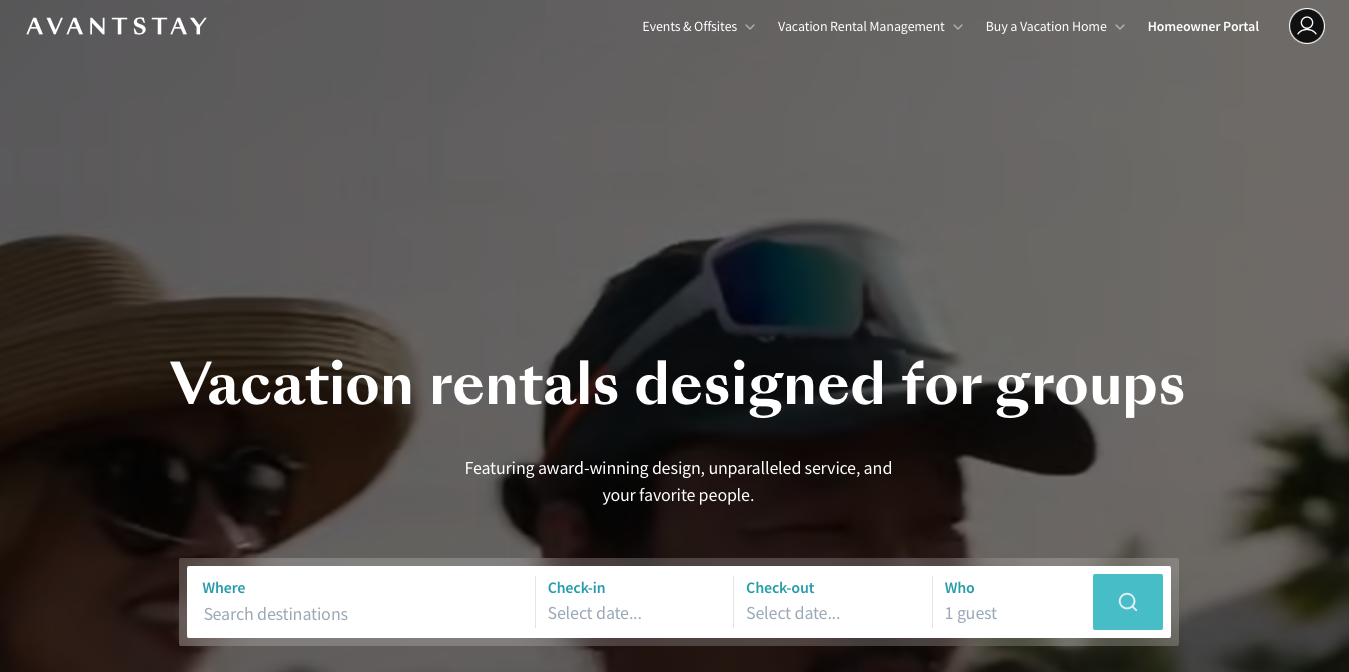
The right setting can shape the entire retreat experience. AvantStay offers full hotel buyouts, private estate takeovers, and clusters of homes within walking distance across 2,300+ professionally designed properties, giving your team the space to meet, recharge, and connect in one cohesive environment. With high-speed WiFi, large gathering areas, and built-in amenities like pools and game rooms, your venue works as hard as your agenda does.
Our dedicated Corporate Experience team helps coordinate lodging, dining, activities, and on-site details, so you can focus on your team instead of juggling logistics. From leadership summits to company-wide offsites, AvantStay makes it easy to bring everyone together in a setting that supports both productivity and connection. Plus, through partnerships with Marriott Bonvoy and Capital One Travel, you can access exclusive benefits and rewards for your corporate retreats.
FAQs
How far in advance should you start planning a corporate retreat?
Begin planning six months to a year in advance, especially for larger groups, to secure ideal venues and lodging while giving your team enough notice to adjust their personal schedules.
What should you include in a corporate retreat budget?
Account for venue rental, lodging, transportation (flights, shuttles, or rental cars), catering and meals, team-building activities, and any welcome packages or company-branded items for attendees.
How do you choose between a vacation rental and a hotel for your corporate retreat?
For small groups, vacation rentals or estates offer privacy and communal spaces, while boutique hotels work better for larger teams needing multiple rooms and built-in amenities like meeting spaces and dining options.
Final thoughts on planning for a corporate retreat
A corporate retreat is going to be as good as you make it. So make sure you put in the necessary work to plan a good one. That idea can seem overwhelming, but if you follow the steps we outlined above, you can get it done in no time. Remember that everyone is different, so a one-size-fits-all approach probably isn’t best. Consider who’s going on the retreat and build a flexible schedule with something included for everyone. Not everyone has to love every aspect of the trip, but you want everyone to enjoy at least some parts of it.
